Breaking Into Healthcare Construction: ICRA Training & Credentials
Aug 12
Construction in hospitals isn’t business as usual. Contractors aren’t just building. They’re working around vulnerable patients, in active clinical settings, where dust, noise, and airflow disruptions can have life-or-death consequences. That’s why healthcare construction demands more than job site experience. It requires infection control knowledge, precise containment protocols, and training that proves you’re hospital-ready.
One of the most essential steps is completing ICRA training, a credential increasingly required by hospitals to work in or around patient care areas. In this guide, we’ll walk you through what makes healthcare construction different, the credentials expected, and how to start qualifying for hospital job sites.
One of the most essential steps is completing ICRA training, a credential increasingly required by hospitals to work in or around patient care areas. In this guide, we’ll walk you through what makes healthcare construction different, the credentials expected, and how to start qualifying for hospital job sites.
What Sets Healthcare Construction Apart From Standard Construction
Healthcare construction projects involve far more complexity than typical commercial builds. Contractors are often working in occupied buildings, near vulnerable populations, and under strict operational constraints. Whether expanding a hospital wing or remodeling an ambulatory surgery center, teams must manage dust, airflow, and noise without disrupting patient care.
Facilities like hospitals and medical centers remain fully operational throughout construction. This means crews must coordinate around active departments and maintain infection control at every stage. Research has shown that construction and renovation activities can increase the risk of exposure to airborne contaminants such as mold spores and Legionella, especially when dust and debris are not properly managed (Cleveland Clinic Journal of Medicine; NIH). These risks are particularly acute in areas like oncology, intensive care, and neonatal units, where patients may be immunocompromised.
Even minor disturbances can release microorganisms into the air, water, or surrounding surfaces, creating potential hazards for patients and healthcare staff alike. Environmental health experts emphasize that proper containment is essential to reducing the risk of healthcare-associated infections during construction and renovation (Pace Analytical).
To reduce these risks, healthcare construction teams must understand how to install temporary barriers, maintain negative air pressure environments, and follow clear infection control protocols. This level of preparation is foundational for anyone working in or around hospitals, medical centers, or outpatient facilities.
Facilities like hospitals and medical centers remain fully operational throughout construction. This means crews must coordinate around active departments and maintain infection control at every stage. Research has shown that construction and renovation activities can increase the risk of exposure to airborne contaminants such as mold spores and Legionella, especially when dust and debris are not properly managed (Cleveland Clinic Journal of Medicine; NIH). These risks are particularly acute in areas like oncology, intensive care, and neonatal units, where patients may be immunocompromised.
Even minor disturbances can release microorganisms into the air, water, or surrounding surfaces, creating potential hazards for patients and healthcare staff alike. Environmental health experts emphasize that proper containment is essential to reducing the risk of healthcare-associated infections during construction and renovation (Pace Analytical).
To reduce these risks, healthcare construction teams must understand how to install temporary barriers, maintain negative air pressure environments, and follow clear infection control protocols. This level of preparation is foundational for anyone working in or around hospitals, medical centers, or outpatient facilities.
The First Step to Safer Healthcare Facility Construction
Healthcare facility construction introduces infection control risks that traditional commercial projects rarely face. When construction takes place in occupied hospitals or clinics, dust, airflow disruption, and debris can pose serious health threats to patients and staff. Infection prevention needs to be built into every phase of a project, not treated as an afterthought.
One of the most important tools used to manage these risks is the Infection Control Risk Assessment, or ICRA. ICRA is a standardized framework used to evaluate potential hazards and establish the containment measures needed during each phase of a construction project. It helps ensure that infection control is not only considered but actively implemented through barriers, negative air pressure, debris management, and communication protocols. (If you're new to ICRA or want to understand how it's evolving, see our overview of ICRA 2.0.)
Given its importance, many healthcare facilities require workers, including contractors, tradespeople, and vendors, to complete ICRA training before stepping onto the jobsite. This training helps ensure everyone understands how to minimize contamination, maintain compliance, and protect patients during construction.
Courses like HigginsEDU’s ICRA healthcare construction training are designed to meet these expectations. The self-paced online format allows individuals and teams to complete foundational training quickly and earn a certificate of completion. For most healthcare construction projects, this is the first credential facility managers expect to see before granting access.
One of the most important tools used to manage these risks is the Infection Control Risk Assessment, or ICRA. ICRA is a standardized framework used to evaluate potential hazards and establish the containment measures needed during each phase of a construction project. It helps ensure that infection control is not only considered but actively implemented through barriers, negative air pressure, debris management, and communication protocols. (If you're new to ICRA or want to understand how it's evolving, see our overview of ICRA 2.0.)
Given its importance, many healthcare facilities require workers, including contractors, tradespeople, and vendors, to complete ICRA training before stepping onto the jobsite. This training helps ensure everyone understands how to minimize contamination, maintain compliance, and protect patients during construction.
Courses like HigginsEDU’s ICRA healthcare construction training are designed to meet these expectations. The self-paced online format allows individuals and teams to complete foundational training quickly and earn a certificate of completion. For most healthcare construction projects, this is the first credential facility managers expect to see before granting access.
Do You Need a Healthcare Construction Certification? Here’s What That Means
Not all credentials in healthcare construction are created equal. Before investing in a multi-month course or exam, it’s worth understanding the difference between formal certifications and practical training.
ICRA Training (Certificate of Completion)
- Typically required before setting foot on a healthcare jobsite.
- Recognized by facility managers as a baseline for hospital access.
- Focuses on infection control knowledge and containment protocols.
- Offered through programs like HigginsEDU’s ICRA-IQ, which deliver quick, online access to hospital-required training.
CHC Certification (Certified Healthcare Constructor)
- A professional credential issued by the American Hospital Association (AHA) in partnership with the American Society for Health Care Engineering (ASHE).
- Validates broad knowledge of healthcare construction project planning, safety, and regulatory standards.
- Requires 3–5 years of healthcare project experience and passing a comprehensive exam.
- Not required by most hospitals for entry, but may be beneficial for long-term career advancement in healthcare project management.
So, do you need a certification?
- To get started in healthcare construction, no formal certification is required, but ICRA training is often mandatory.
- To advance your career: Credentials like CHC can enhance your resume and credibility over time.
Critical Skills for Healthcare Construction Project Management
Healthcare construction project managers play a critical role in bridging the gap between hospital requirements and field realities. When construction leaders understand infection control and operational risks, they help the entire team work more safely, efficiently, and compliantly.
Here are the core skills every project manager needs in a healthcare setting:
- Infection Control Coordination: Project managers must understand how to plan and implement infection control strategies using ICRA principles. This includes working with infection preventionists during pre-construction assessments and ensuring all containment measures align with hospital protocols.
- Communication with Stakeholders: Clear, ongoing communication with hospital staff is essential. Project leaders need to coordinate around clinical schedules, provide updates as conditions change, and ensure everyone (from nursing staff to subcontractors) s aligned on work phases and safety concerns.
- Documentation and Compliance: Proper recordkeeping is a non-negotiable. That includes maintaining ICRA permits, keeping daily logs, and verifying that everyone on the jobsite has completed required training. Documentation helps ensure accountability and protects both patients and the project team.
- Jobsite Planning and Sequencing: Effective managers know how to sequence work to reduce patient disruption. That includes scheduling high-risk tasks during off-hours, installing temporary barriers and HEPA filtration systems, and setting up negative air pressure zones to contain dust and contaminants.
- Emergency Adaptability: When an urgent repair or unexpected event arises, infection control still needs to be part of the response. Skilled managers build in response protocols that include safety and containment, not just speed.
As you can see, managing a healthcare construction project isn’t just about building. It’s about protecting patients, maintaining infection control, and coordinating with clinical operations at every step.
What Makes a Great Healthcare Contractor?
Healthcare facility managers expect more than basic construction skills. The right contractor understands how to work safely in active healthcare environments without disrupting care.
Key traits that set contractors apart:
- Containment expertise: Contractors should know how to install temporary barriers, set up HEPA filtration, and maintain negative pressure to control dust and debris.
- Relevant credentials: An up-to-date ICRA certificate signals that a contractor understands infection control protocols and is cleared for hospital access.
- Strong communication skills: Coordinating with clinical teams is essential. Contractors must stay aligned with hospital schedules and protocols throughout the project.
- Responsiveness under pressure: From emergency repairs to scope changes, contractors need to adapt quickly while keeping safety and compliance top of mind.
- Professional conduct: Facility managers want contractors who are reliable, respectful, and prepared to follow detailed hospital procedures.
These skills and behaviors are often the difference between winning a project and being passed over.
Planning for Healthcare Construction Projects: What to Expect
Unlike standard commercial builds, healthcare construction projects require careful coordination with active clinical operations. From day one, planning must account for infection risks, patient safety, and strict compliance with hospital protocols. That means understanding how to work in or around occupied spaces while minimizing disruption and maintaining a sterile environment.
Construction in hospitals and outpatient clinics often takes place near vulnerable populations. Work may need to happen overnight or in short phases to avoid interfering with patient care. Before breaking ground, contractors are typically required to complete an Infection Control Risk Assessment (ICRA) and submit a detailed containment plan. These plans outline how dust, airflow, and debris will be managed and how crews will respond to potential breaches.
Throughout the project, communication with hospital staff remains critical. Infection preventionists, project managers, and clinical teams must stay aligned on timelines, access points, and safety expectations. Teams also need to maintain thorough documentation, including daily logs and proof of ICRA training, to demonstrate compliance and protect patient safety.
In short, successful healthcare construction projects depend on more than technical expertise. They require thoughtful sequencing, proactive collaboration, and a clear understanding of the healthcare environment long before anyone steps on site.
Get Hospital-Ready With ICRA Training From HigginsEDU
To access healthcare construction projects, most facilities require proof that your team understands and can apply infection control protocols. That’s where ICRA training comes in. HigginsEDU’s online ICRA-IQ course gives contractors, tradespeople, and vendors a fast, accessible path to hospital readiness.
- Fully online and self-paced
- Certificate of completion provided
- Designed for both individuals and teams
- Meets typical hospital job site requirements
Start ICRA Training Now →
Whether you’re preparing for a hospital renovation, a new medical center build, or a quick repair in a patient care area, this training will help ensure you’re cleared and compliant.
FAQs About Healthcare Construction
What is healthcare construction?
Healthcare construction refers to building or renovating hospitals, clinics, and medical centers. It requires special training in infection control and compliance with patient safety protocols.
Do I need a certification to work in healthcare construction?
Most hospitals do not require formal certifications to work in hospital environments. However, proof of ICRA training is increasingly mandatory to access healthcare job sites safely and compliantly.
What is ICRA training in healthcare construction?
ICRA training teaches workers how to reduce infection risks during hospital construction projects. It’s a common requirement for contractors, vendors, and tradespeople working in patient care areas.
What does an ICRA certificate mean?
An ICRA certificate shows you’ve completed infection control training for healthcare construction. It’s often the first step to qualifying for hospital projects.
What makes a good healthcare construction contractor?
A good healthcare contractor understands infection control, communicates well with clinical staff, and follows strict safety protocols. ICRA training is a key part of that readiness.
Still have questions about healthcare construction or ICRA training?
Reach out to our ICRA specialists at info@higgins-and-associates.com. We’re happy to help clarify requirements, training options, or anything else you're navigating.



